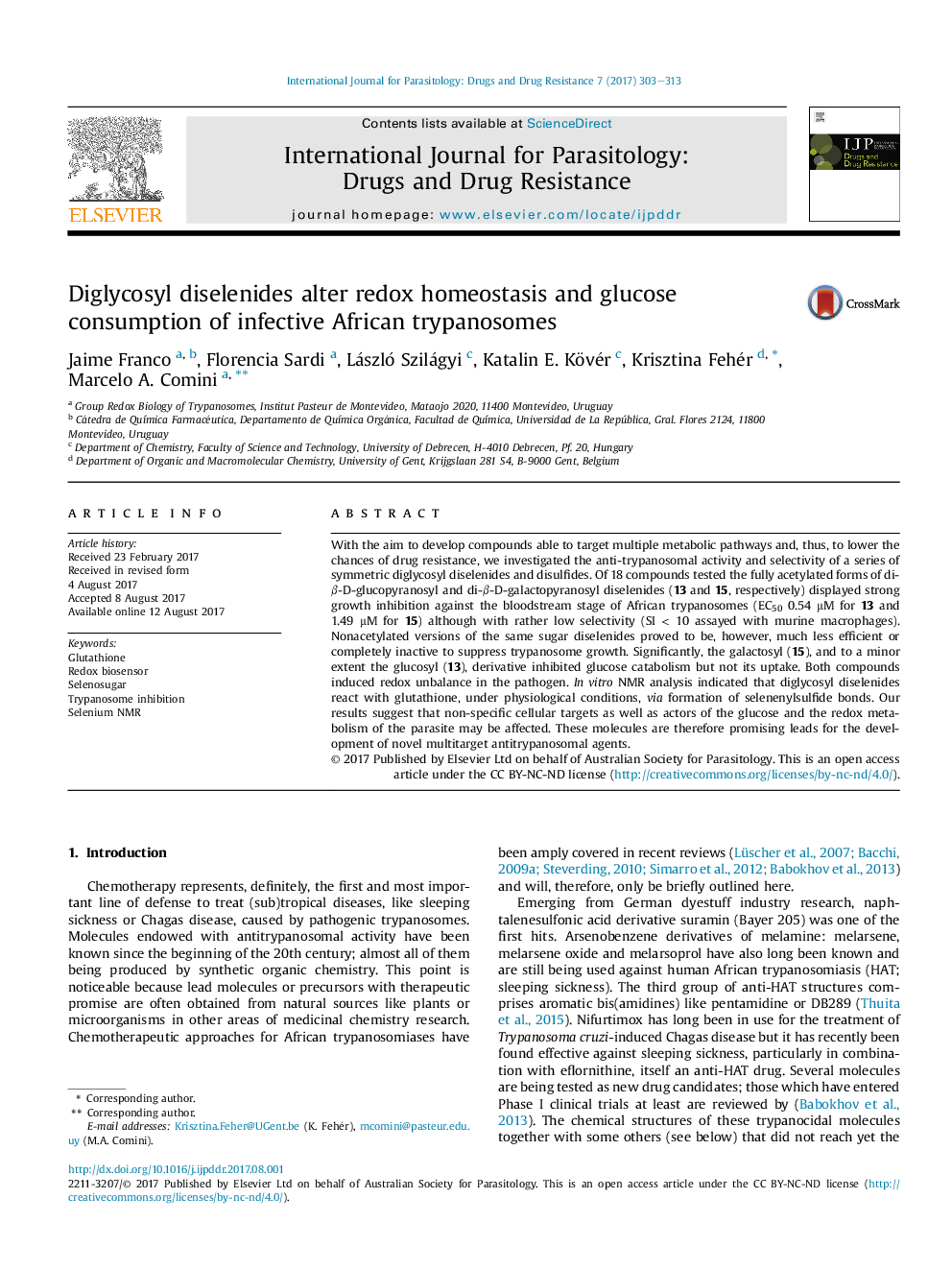| کد مقاله | کد نشریه | سال انتشار | مقاله انگلیسی | نسخه تمام متن |
|---|---|---|---|---|
| 5517842 | 1543805 | 2017 | 11 صفحه PDF | دانلود رایگان |

- Acetylated diglycosyl diselenides inhibit the proliferation of infective Trypanosoma brucei.
- A galactosyl derivative impairs parasite' glucose consumption and redox homeostasis.
- Diglycosyl diselenides react covalently with glutathione under mild conditions..
- Acetylated diglycosyl diselenides represent multitarget antitrypanosomal candidates.
With the aim to develop compounds able to target multiple metabolic pathways and, thus, to lower the chances of drug resistance, we investigated the anti-trypanosomal activity and selectivity of a series of symmetric diglycosyl diselenides and disulfides. Of 18 compounds tested the fully acetylated forms of di-β-D-glucopyranosyl and di-β-D-galactopyranosyl diselenides (13 and 15, respectively) displayed strong growth inhibition against the bloodstream stage of African trypanosomes (EC50 0.54 μM for 13 and 1.49 μM for 15) although with rather low selectivity (SI < 10 assayed with murine macrophages). Nonacetylated versions of the same sugar diselenides proved to be, however, much less efficient or completely inactive to suppress trypanosome growth. Significantly, the galactosyl (15), and to a minor extent the glucosyl (13), derivative inhibited glucose catabolism but not its uptake. Both compounds induced redox unbalance in the pathogen. In vitro NMR analysis indicated that diglycosyl diselenides react with glutathione, under physiological conditions, via formation of selenenylsulfide bonds. Our results suggest that non-specific cellular targets as well as actors of the glucose and the redox metabolism of the parasite may be affected. These molecules are therefore promising leads for the development of novel multitarget antitrypanosomal agents.
279
Journal: International Journal for Parasitology: Drugs and Drug Resistance - Volume 7, Issue 3, December 2017, Pages 303-313